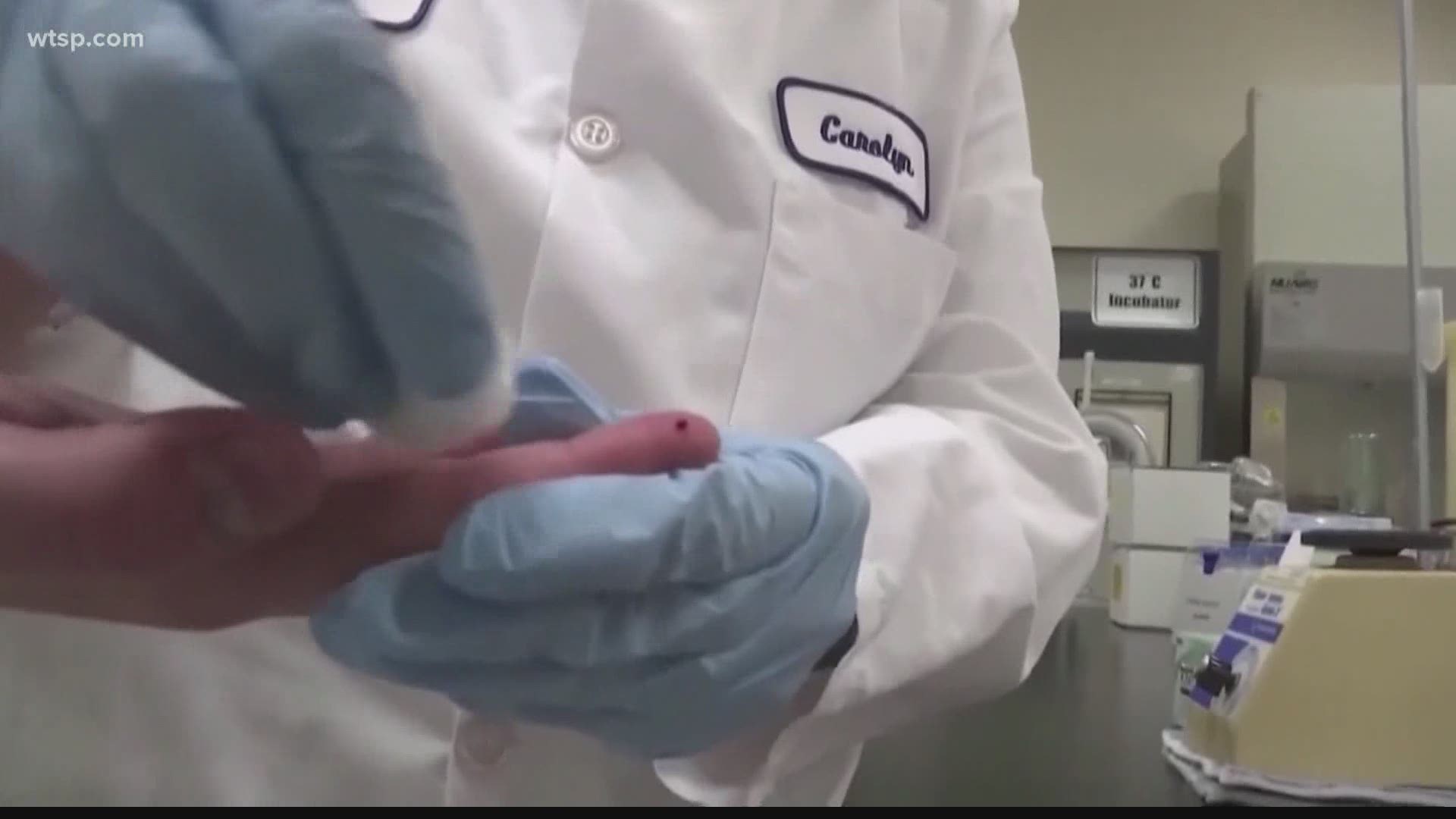ST. PETERSBURG, Fla. — Whether you were previously sick with the coronavirus, or suspect you might have had it earlier this year and just didn’t know it, more people in Florida are getting tested to find out if they have COVID-19 antibodies.
Gov. Ron DeSantis previously said antibody testing would be key to getting people back to work and school by determining who has already been exposed to the virus.
But months later, as test quality has improved leading to more reliable results, health experts like Dr. Jay Wolfson with the University of South Florida warn there’s a lot we don’t yet know when it comes to interpreting those results.
“We just don’t know enough about this disease yet to know that if I test positive for having had it how long that’s going to stay with me,” Wolfson said. “We don’t know if you might be able to get it again or if there is a mutation, which we’re going to expect, if you’d be equally susceptible to that.”
Wolfson says a positive antibody test result should not be mistaken as a pass to remove your mask and drop your guard given the continued questions over how long immunity lasts.
The uncertainty was echoed Tuesday in Orlando during a press conference DeSantis held with doctors.
"There is a danger of giving a false sense of, 'Hey I've got an antibody I can go out and do whatever I want to,' or for that matter, you're not infectious and won't be able to spread it," said Dr. Sunil Desai with Orlando Regional Medical Center.
"The science is still trying to sort that out."
The National Institutes of Health issued new recommendations on COVID-19 antibody testing Tuesday, cautioning that “additional research is needed to determine if and to what extent a positive antibody test means a person may be protected from reinfection.” The recommendation said that until that data is available, antibody tests shouldn’t be used solely to “make decisions about personal safety.”
This month, the state started reporting serology results. As of June 19, it's received more than 206,000 antibody tests with roughly 4 percent coming back positive.
Wolfson says despite the uncertainty surrounding immunity, people shouldn’t feel discouraged about getting tested because the data is still valuable, especially to the community.
“It’s critically valuable for us in the surveillance and the disease management process because the more data we get, the more testing we do, the more granular the view our community is going to be," he said.
“But it’s even more critically important that everybody realize we don’t know enough about what that test really means for them personally.”
- Gov. DeSantis signs bill to increase teacher pay
- Pinellas County mandates face coverings inside most public buildings
- Coronavirus in Florida: State breaks another record with more than 5,000 new cases in a day
- NY, NJ and Connecticut to require travelers from COVID-19 hotspots, including Florida, to quarantine for 14 days
- Police rescue dog left in hot car in Clearwater Beach parking garage
- 'It’s not over:' MacDill reservist who spent months on COVID-19 front lines in NYC returns home with warning
- Dr. Fauci hopeful for COVID-19 vaccine by late 2020, early 2021
- New cases, hospitalizations, deaths: How Florida is doing in its COVID-19 battle
►Stay In the Know! Sign up now for the Brightside Blend Newsletter



